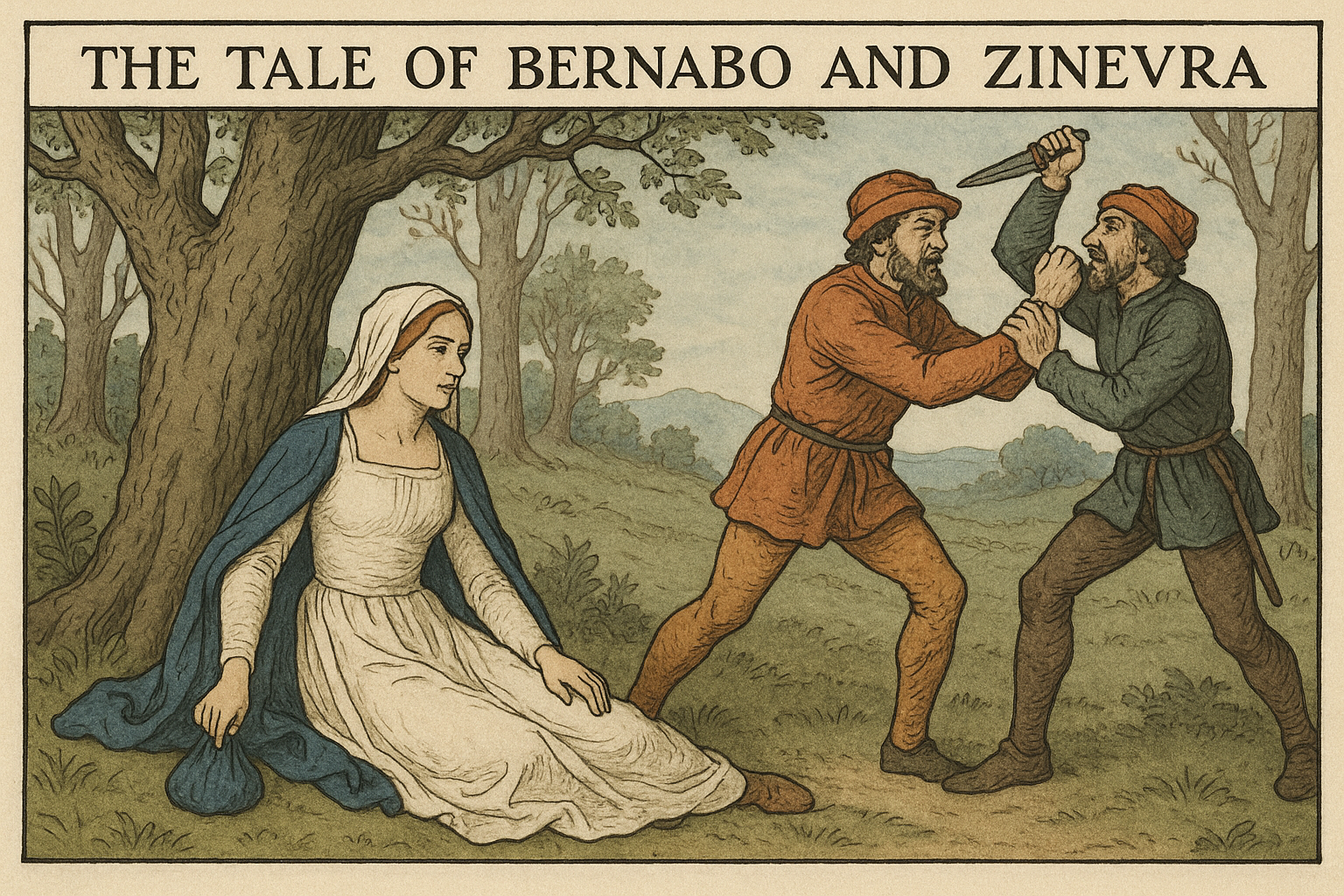"Disguises and Devotion: Zinevra's Triumph Over Treachery and False Accusation"

Introduction:
In The Decameron, Boccaccio tells the exciting and inspiring story of Zinevra, a clever and loyal woman who proves her innocence and outsmarts betrayal. This review shows how Zinevra’s intelligence, strength, and sense of justice allow her to survive deception and defend her honor. The story still matters today because it speaks about trust, gender expectations, and the power of truth.
Summary:
Zinevra is a noblewoman married to Bernabò, a wealthy merchant. While traveling, Bernabò brags that his wife is the most virtuous woman alive. A man named Ambrogiuolo, jealous of her praise, bets that he can seduce her. Instead, he sneaks into her room, steals personal items, and tricks Bernabò into thinking she’s been unfaithful. Bernabò, enraged, orders her killed. But the servant spares her life, and Zinevra disguises herself as a man and starts a new life in Alexandria. Years later, she uncovers the truth in public, proves her innocence, and forgives Bernabò. Ambrogiuolo is punished, and Zinevra’s wisdom and honor are celebrated.
Analysis:
The main theme of this story is the triumph of truth and intelligence over lies and betrayal. Boccaccio shows how a woman, though wronged and nearly destroyed by false accusations, can rise above injustice through courage and cleverness. Zinevra’s story warns us about the danger of jealousy and blind trust, and celebrates those who seek justice with grace and strength.
Zinevra is a standout character because she is strong, smart, and calm even in moments of danger. She doesn’t wait to be saved — she saves herself. Her actions challenge the idea that women should be passive or helpless. Bernabò, though well-meaning at first, represents the kind of pride and gullibility that causes harm when people believe lies too quickly. Ambrogiuolo stands for the cruelty of those who play games with other people’s lives for their own pride or gain.
Boccaccio uses clever storytelling tools like disguise, dramatic irony, and poetic justice. Zinevra’s male disguise allows her to navigate a man’s world and find the truth, while the public reveal adds drama and satisfaction. The ending is not just happy — it’s a reminder that truth, when fought for bravely, can win in the end. The story also reflects how hard it was for women to prove their innocence in a world that often doubted them.
This tale still connects to modern issues. Even today, people — especially women — are judged unfairly or face accusations without proof. Zinevra’s calm and clever response to betrayal shows that dignity and reason can be more powerful than violence or revenge. Her story reminds us that justice sometimes takes time, but it is always worth pursuing.
Personal Response:
This story made me admire Zinevra for her strength and wisdom. I felt angry that she was falsely accused, but proud of how she handled everything with calm and courage. The moment when she revealed the truth in front of everyone was so satisfying — it felt like justice finally won. I was also surprised by how modern the story felt, especially with its message about trust and the way society judges women. Zinevra inspired me because she didn’t give up or lose hope, even when her own husband turned against her. Her forgiveness at the end showed how strong she truly was, not just in mind, but in heart.
Conclusion:
Zinevra’s story is unforgettable because it shows how truth, courage, and intelligence can defeat lies and cruelty. Boccaccio gives us a female hero who doesn’t just survive — she teaches everyone around her what real honor looks like. Her journey reminds us that even when people try to tear us down with lies, standing strong in our truth can lead to justice and respect. Zinevra’s wisdom still shines today, as a symbol of strength, grace, and self-respect.








